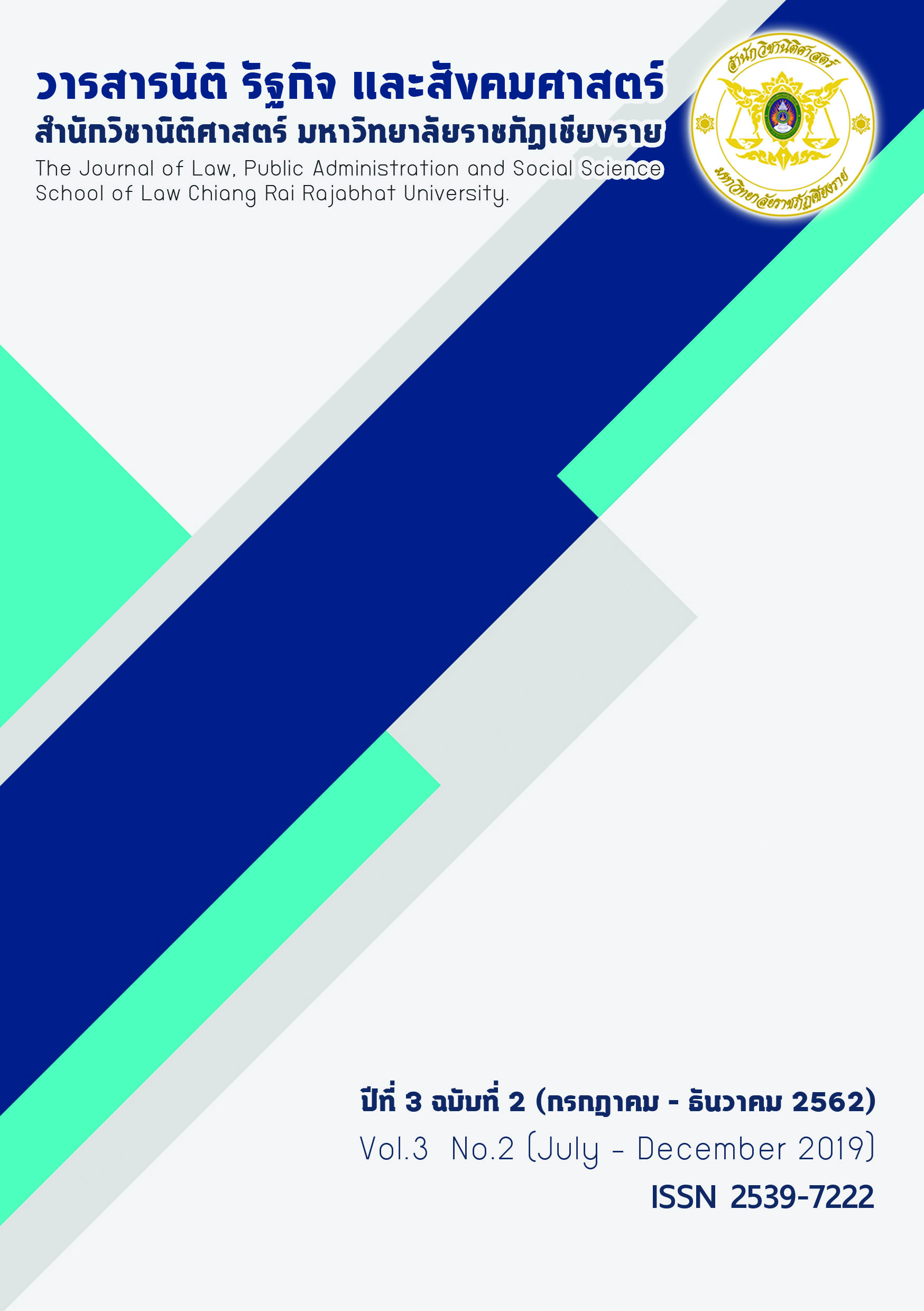The Legal status of the Tourists in Space Tourism
Main Article Content
Abstract
Space Tourism becomes the new era of the exploration and use of outer space in the peaceful purposes, and has been discussed scholarly for a long period of time. As a result of the outer space competition has evolved increasingly include non-state entities specifically the space companies, which are becoming the serious actors in outer space activities themselves.
However, the ambiguity of the international legal principle is concerned, especially in the legal of status of the space tourists are questionable in the present, the international space laws only recognize the astronaut as the envoy of mankind in accordance with the Outer Space Treaty (formally known as Treaty on Principles Governing the Activities of States in the Exploration and Use of Outer Space, including the Moon and Other Celestial Bodies 1967), Article V provides that “States Parties to the Treaty … shall render to them all possible assistance in the event of accident, distress, or emergency landing on the territory of another State Party or on the high seas” and elaborated in the Rescue Agreement (formally known as Agreement on the Rescue of Astronauts, the Return of Astronauts and the Return of Objects Launched into Outer Space 1968). Nevertheless, it does not mention to the legal status of the tourists in space tourism, even though in the Rescue Agreement broadens this obligation to include all “personnel of a spacecraft”, it is questionable whether the word “personnel of the aircraft” in this context refers to space tourists as well.
This paper argue that the word “personnel of a spacecraft” in Rescue Agreement is not include the space tourists, because the space tourism is a commercial transaction, so the tourists neither represent their country nor the envoy of mankind, they go to the outer space for pleasure and recreation, do not conduct researches for their country. Therefore, it cannot apply the Outer Space Treaty and the Rescue Agreement to the space tourists in the space tourism.
Article Details
References
Steven Freeland. (2005). Up, Up and … Back: The Emergence of Space Tourism and Its Impact on the International Law of Outer Space. Chicago Journal of International Law: Vol.6: No. 1.
Stephen Hobe & Jürgen Cloppenburg. (2004). Towards a New Aerospace Convention? - Selected Legal Issues of Space Tourism. in: Proceeding of the 47th Colloquium on the Law of Outer Space.
Stephan Hobe, Gerardine Meishan Goh & Julia Neumann. (2007). Space Tourism Activities - Emerging Challenges to Air and Space law?. Journal of Space Law : Vol.33: No. 2.
Zeldine O'Brien. (2004). Liability for Injury, Loss or Damage to the Space Tourist. in: Proceeding of the 47th Colloquium on the Law of Outer Space.
Zhao Yun. (2009). A Legal Regime for Space Tourism: Creating Legal Certainty in Outer Space. Journal of Air Law and Commerce: Vol.74: No. 4.
The National Aeronautics and Space Administration. Ansari X-Prize: A Brief History and Background. last modified November 19, 2017. https://history.nasa.gov/x-prize.htm
Treaty on Principles Governing the Activities of States in the Exploration and Use of Outer Space, including the Moon and Other Celestial Bodies.
Agreement on the Rescue of Astronauts, the Return of Astronauts, and the Return of Objects Launched into Outer Space.

